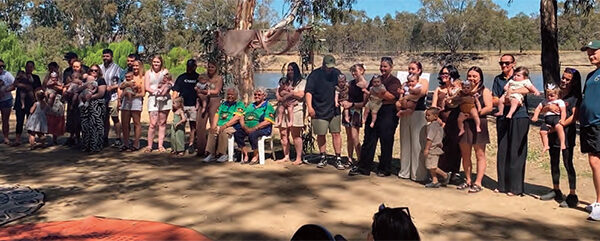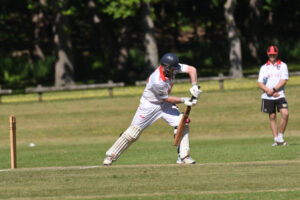UPDATE: As spring arrives in Australia, urgent warnings emerge about a spike in severe hayfever symptoms among children under five. Experts confirm that approximately 25% of the population is affected, with many parents mistaking these symptoms for the common cold.
Seasonal allergies are set to peak from September 1 until the end of November, coinciding with the release of pollen from blooming plants. Kira Hughes, a leading pollen expert, stated, “Unfortunately, a lot of that pollen ends up in our nose, in our faces, and that causes typical allergies.” Symptoms like sneezing, itchy eyes, and a runny nose, commonly seen in adults, are increasingly affecting young children.
A recent study by Zyrtec found that while 92% of parents noticed symptoms like sneezing and coughing, only 11% considered that allergies might be the cause. This lack of awareness is alarming as children under five are particularly vulnerable to severe allergic reactions. Hughes emphasizes, “Children tend to have more severe symptoms than adults,” largely due to their developing immune systems.
The study conducted swab tests in homes across Sydney, revealing alarming levels of outdoor allergens like pollen, fungi, and mould inside everyday items. “We found high concentrations on windowsills and entries to fireplaces,” Hughes reported. “Pollen is coming in directly from outside the house … and settling as dust.” This highlights the necessity for parents to maintain a clean environment, especially during peak allergy seasons.
Hughes urges parents to regularly wash hands and clothing during spring to minimize allergen exposure. “The thing that parents forget is when spring rolls around, it’s when all the pollen’s in the air,” she stated. Ignoring these symptoms could lead to prolonged suffering for children, who may experience weeks or even months of discomfort.
Parents are advised to monitor symptoms closely. If symptoms persist longer than a week or two without improvement, it’s crucial to consult a healthcare professional. “If it’s a common cold, symptoms tend to drop off after a week or two. But if they last for weeks or months, it’s very likely that the child’s suffering from hayfever,” Hughes warned.
In response to this urgent issue, Zyrtec has launched a new waterproof bath book, titled Zach and Zoe: Hide and Sneeze, aimed at educating children and parents about allergic rhinitis. “The book is written in a really informative format so they can help to learn more about these symptoms and managing it,” Hughes explained. This educational resource is available as a complimentary gift from participating pharmacies with a purchase of Zyrtec.
As spring unfolds, parents are advised to stay vigilant and informed about the potential impacts of seasonal allergies on their children. With the pollen count rising, immediate action can help reduce symptoms and improve the quality of life for young allergy sufferers.


































































